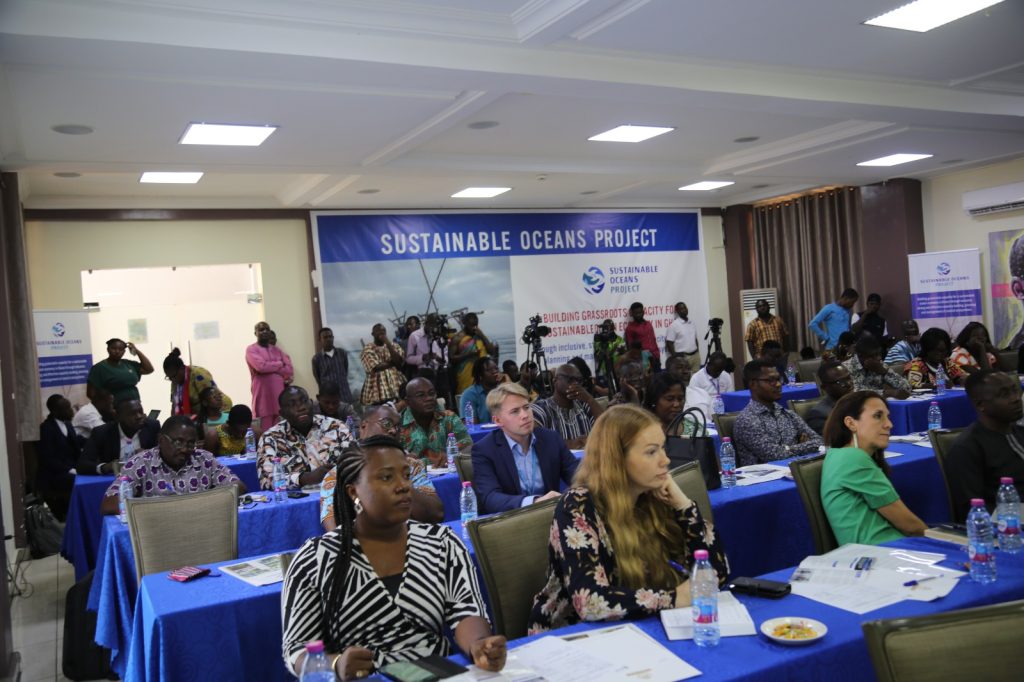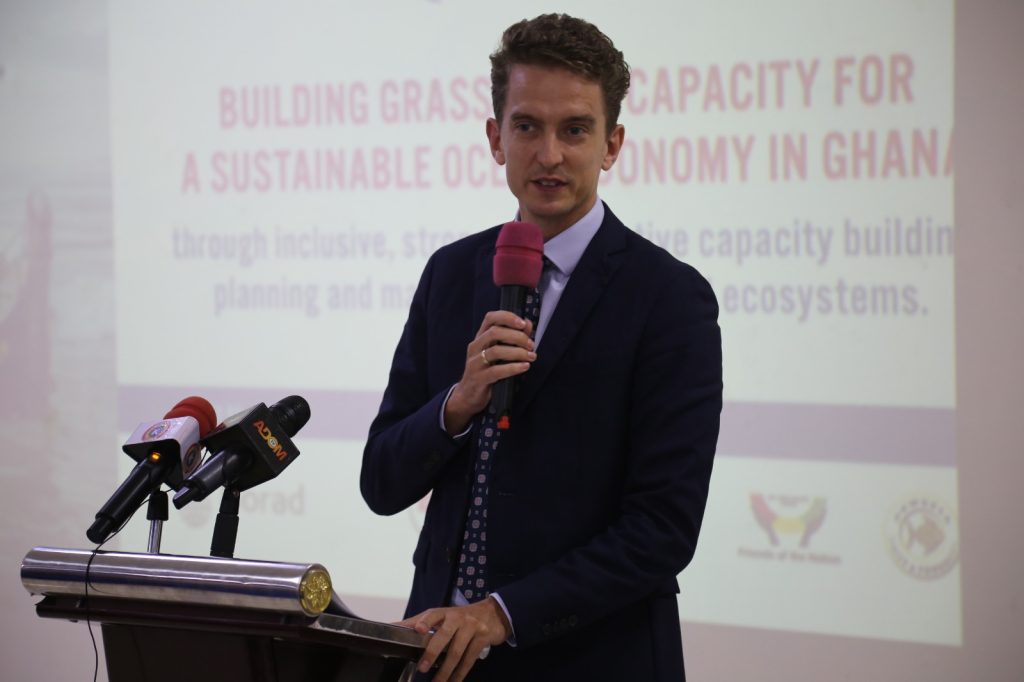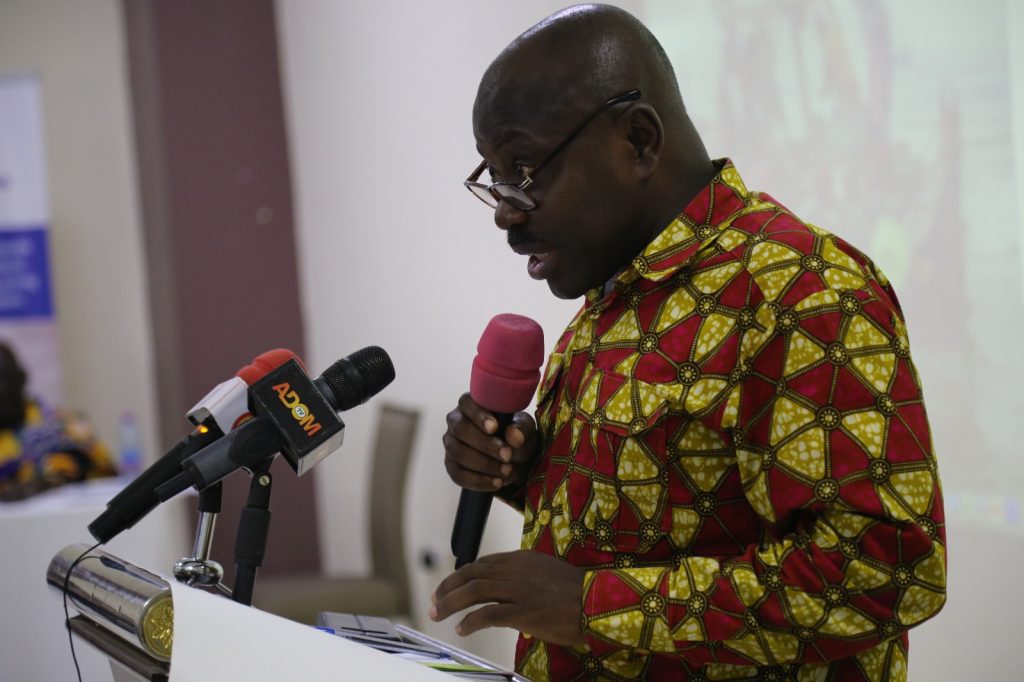By Godwill Arthur-Mensah
Accra, Feb.8, GNA – More than 200,000 fishers along the four coastal regions in Ghana will be impacted positively from a three-year project focused on the fisheries sector.
Known as the Sustainable Oceans Project, it is to help reduce the depletion of the fish stocks, improve income of residents in coastal communities and mitigate climate change effects on fisheries resources in the country.
The implementers are the Environmental Justice Foundation, Hen Mpoano, Friends of the Nation, and the Central and Western Fishmongers Improvement Association.
The Norwegian Agency for Development Corporation is funding the project.
Mr Moses Anim, the Deputy Minister of Fisheries and Aquaculture Development, at the launch on Tuesday, said the ocean economy played a crucial role in the country’s development in terms of job creation, nutritional value for Ghanaians, foreign exchange earning and contribution to the gross domestic product.

Ghana’s marine fisheries provide livelihoods for between 2.5 to three million people along the fisheries value chain, representing 10 per cent of the population.
Mr Anim, however, said over the past two decades, illegal, unreported and unregulated (IUU) fishing practices had depleted the fish stock and adversely affected the livelihoods and income of coastal communities.
Those illegal fishing practices resulted in the European Union issuing a Yellow Card to Ghana for failing to deal with the illegalities, he said.
Mr Anim gave the assurance that the Government would ensure fishers conform to the right fishing methods and promote the use of appropriate fishing gears.
The Ministry, he said, had been collaborating with relevant interest groups in the fisheries sector to halt illegal fishing practices.
The unveiling of the Project attracted key stakeholders including officials from the Fisheries Commission, government appointees from the metropolitan, municipal and district assemblies in the four coastal regions-Greater Accra, Central, Western and Volta, members of the Ghana National Canoe Fishermen’s Council and Ghana National Fish Processors and Traders Association.
Mr Theophilus Boachie-Yiadom, the Project Coordinator and Fisheries Programme Manager at the Environmental Justice Foundation, said the project intended to improve income resilience of fishing communities, enhance opportunities within the fisheries value chain and promote enterprise development.

It would further strengthen climate change adaptation and mitigation capacities in coastal areas through improved spatial and land-use planning and community-led management of wetlands and mangrove ecosystems, he said.
The implementers of the project would engage small-scale fishers, clam collectors, processors and traders in the value chain across the four coastal regions.
Mr Boachie-Yiadom said more than 5,000 artisanal fishers would be trained in fisheries management practices while 600 processors would be engaged in value addition, hygienic handling of fish products and access to credit.
The project would build the capacity of 50 officials from the Navy, Marine Police, prosecutors and judges with technical input from national legal experts to support effective enforcement of fisheries laws and good governance.
Additionally, 30 journalists would receive training to ensure accurate and timely reporting on the fisheries sector while coastal communities would be trained to protect mangroves and promote climate change mitigation measures.

“The project would target land-use planners at the Metropolitan, Municipals and District Assemblies to incorporate mangrove protection into land-use plans; to build mangrove conservation into action plans including building the capacities of 160 traditional authorities and landowners,” Mr Boachie-Yiadom added.
Mr Kyrre Holm, Deputy Head of Mission, Norwegian Agency for Development Corporation, said the project would provide valuable complementary activities to improve the existing bilateral cooperation between Norway and Ghana towards advancing the management of marine resources.
He expressed the Norwegian government’s commitment to helping the country to address the challenges in the fisheries sector.
“Norway as an ocean nation is interested in assisting other coastal nations like Ghana to addressing some of the challenges in the marine fisheries sector,” Mr Holm said.
He underscored the need for responsible and sustainable use of the ocean’s resources so that the future generations could also benefit.
The ocean economy, he noted, had the potential of driving Ghana’s economic growth, create jobs, and promote sustainable development.
To achieve that goal, he said, it was imperative to build the capacity of the coastal communities to participate in ensuring sustainable use of the fisheries resources.
Osabarimba Kwesi Atta II, the Omanhen of Oguaa Traditional Area, who co-chaired the function, called on all interest groups in the sector to make meaningful contributions towards protecting the country’s fisheries resources.
Nana Akosua Gyamfiaba, the Acting Queenmother of Shama Traditional Area, lamented the activities of illegal small-scale miners that had polluted lagoons and other waterbodies, which had killed marine life.
She, therefore, urged all interest groups to join forces with the Government to end the galamsey menace and preserve the country’s fisheries resources.
The launch was on the theme: “Building Grassroots Capacity for a Sustainable Ocean Economy in Ghana through Inclusive, Strong and Effective Capacity Building, Planning and Management of Coastal Ecosystems”.
GNA